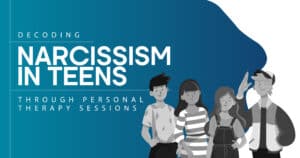“Can the mind fake its own madness?” Ganser Syndrome, a rare and fascinating mental health condition, dances along that very question. This disorder straddles the line between the conscious and subconscious, the genuine and the performative. With symptoms that seem both intentional and involuntary, Ganser Syndrome confounds even seasoned clinicians.
It’s not just the strange behaviors that raise eyebrows—it’s the why behind them. From giving bizarrely incorrect answers to everyday questions (“What’s 2 + 2?” “Five.”), to reporting hallucinations that lack the vividness of psychosis, individuals with Ganser Syndrome exhibit symptoms that look suspiciously like fakes… but aren’t.
In this blog, we’ll explore what this disorder really is, how it’s diagnosed, how it differs from conditions like malingering and factitious disorder, and what treatment can look like for those caught between consciousness and confusion.
Defining Ganser Syndrome – A Rare and Puzzling Condition
Ganser Syndrome is classified under dissociative disorders in the DSM-5. Though rare, it’s characterized by a curious mix of behaviors that mimic mental illness, not to deceive, but as a response to deep psychological stress.
The condition often occurs in individuals facing severe trauma, intense stress, or incarceration. It’s sometimes referred to as “prison psychosis” because of its reported frequency among inmates.
Key Features Include:
- Approximate answers (vorbeireden) – Responses that are close but incorrect
- Pseudohallucinations – Vivid but known-to-be-false sensory experiences
- Somatic conversion symptoms – Sudden blindness, numbness, or paralysis
- Episodes of amnesia or disconnection from reality
Recognizing the Signs: Symptoms and Characteristics
Individuals with Ganser Syndrome typically show a mix of neurological symptoms and mental confusion that can seem staged at first glance. However, the key difference lies in intent—these behaviors are not under conscious control.

Let’s break down some of the most common behavioral markers seen in clinical evaluations:
Approximate Answers and Pseudohallucinations
Rather than outright denial of knowledge, individuals might answer in a way that suggests confusion or disorientation:
- Q: “What color is snow?”
A: “Green.” - Q: “What’s the capital of France?”
A: “London.”
While clearly wrong, these responses are often nearly correct, hence the term “approximate answers.”
In addition, pseudohallucinations are commonly reported. Unlike classic hallucinations seen in schizophrenia, these individuals know the voices or visions aren’t real, even as they describe them.
Emotional Distress and Behavioral Inconsistencies
Other hallmarks include:
- Sudden episodes of disconnection, including amnesia
- Inconsistency in emotional expression (e.g., laughing when discussing something traumatic)
- Overt signs of distress without a clear explanation
- Neurological-like symptoms with no physical basis
Ganser Syndrome vs. Other Mental Health Disorders
Differentiating Ganser Syndrome from other disorders is tricky, especially because mimicry is part of the presentation. But clinical professionals rely on structured evaluations and ruling out intentional deception.
How It Differs from Dissociative and Factitious Disorders
| Condition | Primary Motivation | Awareness of Symptoms | Key Differentiator |
| Ganser Syndrome | Unconscious psychological escape | Symptoms are distressing but not recognized as deliberate | Approximate answers, known hallucinations |
| Factitious Disorder | Desire to assume a “sick role” | Symptoms are consciously faked | Intentional falsification without external reward |
| Dissociative Amnesia | Escape from trauma | Genuine memory loss | Does not include bizarre incorrect answers |
The Role of Amnesia and Altered Consciousness
Ganser Syndrome often presents with dissociative amnesia, a hallmark of trauma-related disorders. Patients may forget key facts about themselves, their environment, or recent events. This detachment from identity or time reflects a deep disconnection between mind and memory.
Symptoms of altered consciousness include:
- Loss of time or awareness
- Inability to distinguish between reality and illusion
- Episodes of trance-like states
- Sudden onset of unexplained physical symptoms (e.g., vision loss, paralysis)
Ganser Syndrome Within the Dissociative Disorder Spectrum
Ganser Syndrome is closely related to other dissociative disorders like dissociative identity disorder (DID) and depersonalization-derealization disorder, but it’s considered distinct because of its bizarre cognitive presentation.

The syndrome may function as a defense mechanism, offering an escape when the psyche is overwhelmed by internal conflict, external stress, or traumatic memory.
California Mental Health
Factitious Disorder and Malingering – Drawing the Line
To understand Ganser Syndrome, we have to separate conscious deception from subconscious distress. That means differentiating it from:
- Factitious Disorder – where a person wants to be seen as ill
- Malingering – where symptoms are faked for external rewards (e.g., avoiding work, legal consequences.
Impact of Psychological Symptoms on Mental Health and Daily Life
Despite its dramatic presentation, Ganser Syndrome is not “attention-seeking behavior.” The symptoms—although they look strange—are incredibly distressing for the person experiencing them. Some of the most common impacts include:
- Difficulty holding jobs or relationships
- Frequent hospitalization or misdiagnosis
- Social stigma due to the unusual behavior
- Low self-esteem after recovery when reflecting on past episodes
Gambling Addiction Treatment Options: What Works?
While no one-size-fits-all solution exists, clinical observations and case studies show positive treatment outcomes with the right support. Psychotherapy is the frontline approach.
Proven Treatment Options Include:
| Treatment Approach | Description | Key Benefit |
| Cognitive Behavioral Therapy (CBT) | Focuses on identifying and changing harmful thought patterns and behaviors | Builds self-awareness and replaces gambling urges with healthier coping mechanisms |
| Trauma-Focused Therapy | Addresses underlying trauma that may contribute to compulsive gambling | Heals unresolved emotional pain, often a hidden root of addiction |
| Family or Group Therapy | Involves loved ones or peer groups in the recovery process | Provides emotional support, reduces isolation, and fosters accountability |
| Psychoeducation | Educates the individual (and often their family) about the nature of addiction | Reduces stigma, encourages engagement, and helps prevent relapse |
Ready for Clarity? Reach Out to California Mental Health
Ganser Syndrome may be rare, but its effects are deeply real. If you or someone you care about is exhibiting strange, inconsistent behaviors under stress, it’s not just “faking it.” It may be something far more complex—and treatable.
At California Mental Health, we offer comprehensive assessments, therapy programs, and individualized care for rare and complex mental health conditions like Ganser Syndrome. Don’t wait for answers. Find clarity, support, and healing today.
Contact California Mental Health to learn more or schedule a confidential consultation.
California Mental Health
FAQs
- How does Ganser Syndrome differ from other dissociative disorders in terms of psychological symptoms and consciousness?
Ganser Syndrome involves approximate answers, pseudohallucinations, and altered consciousness. Unlike other dissociative disorders, it presents with symptoms that seem imitative but are not consciously produced.
- What is the relationship between factitious disorder and malingering when discussing Ganser Syndrome?
Factitious disorder and malingering involve intentional deception, while Ganser Syndrome is a subconscious response to severe stress or trauma, with no external incentives.
- Can amnesia be considered a central component of Ganser Syndrome, and how does it affect an individual’s consciousness?
Yes, dissociative amnesia is a common feature. It leads to memory gaps, disorientation, and detachment from surroundings, disrupting day-to-day functioning.
- In what ways do the psychological symptoms of Ganser Syndrome impact daily life and mental health?
The symptoms can strain personal relationships, lead to social withdrawal, misdiagnosis, and a cycle of distress due to misunderstanding by others.
- What are the key factors in diagnosing Ganser Syndrome compared to other mental health disorders?
Diagnosis involves ruling out malingering, factitious disorder, and neurological issues. The presence of approximate answers, dissociation, and pseudohallucinations is an essential clue.







